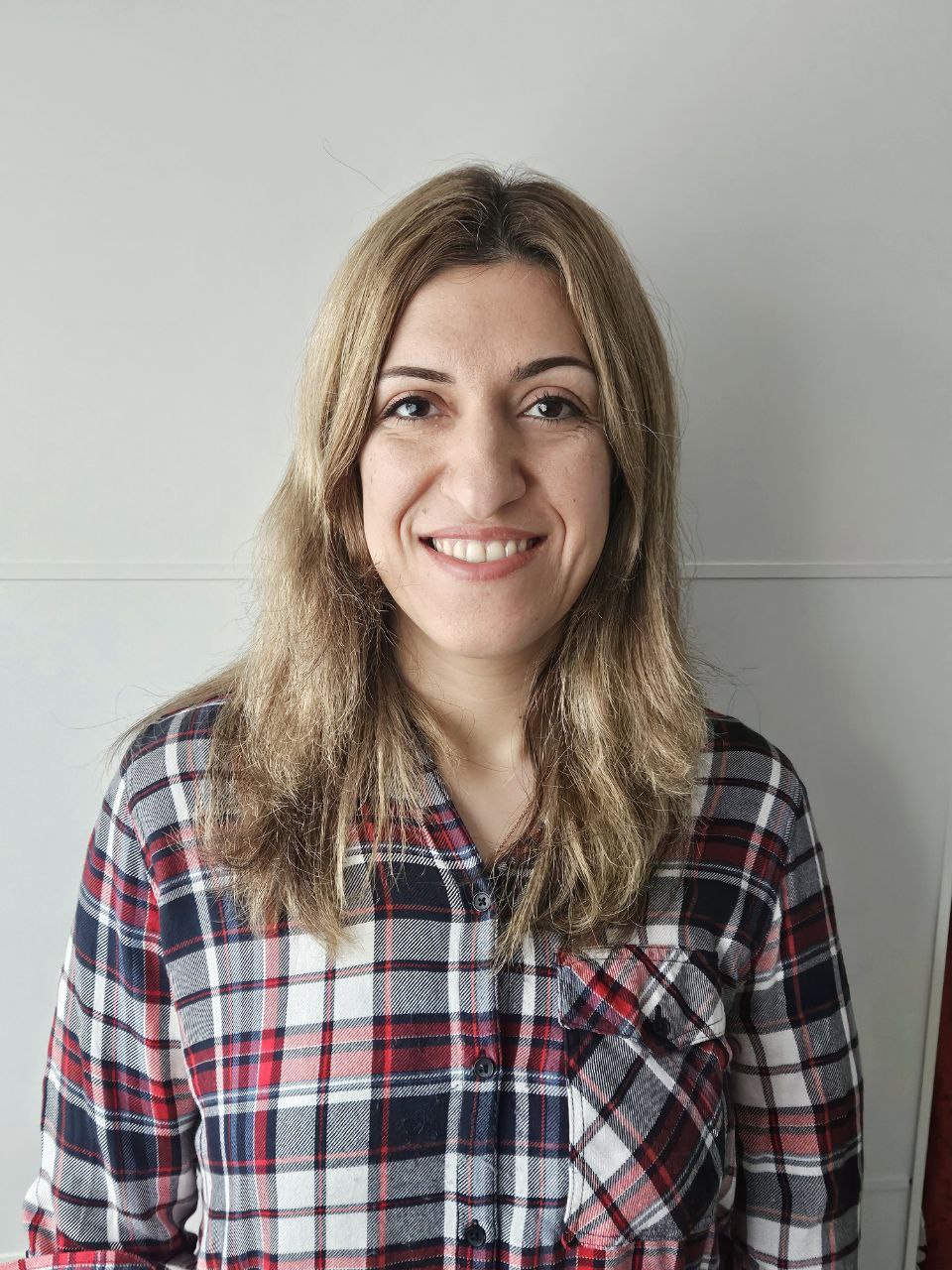This website uses cookies that store information about your usage of the page. By continuing to use this page you confirm you are happy with that.
Review and change how cookies are used.
Our members are people with expertise in areas of robotics, artificial intelligence, computer science, mathematics, biology, and engineering, and students heading that way.
f.amirabdollahian2@herts.ac.uk
Research Profile
Personal Profile
Robot House, Kaspar
Rehabilitation Robotics, Assistive Robotics, Technology to Support Ageing and Wellbeing, Safety of Robots, Ethical Robotics, Haptic Feedback, Physiological Sensing and Machine Learning, Agricultural Robotics, Robots for Education
I am a professor of Human-Robot Interaction at the School of Engineering and Computer Science, the University of Hertfordshire. I am currently director of the Robotics Research Group but also I direct Robot House and Kaspar projects.
I am the University Theme Champion in Information and Security. I coordinated and completed the Accompany and SCRIPT projects funded by the framework 7 programme of the European Community.
My research is focused on human-robot interaction and is applied in the context of rehabilitation, assistive technology and more recently, over the past 7 years, takes an interest on deep learning and machine learning approaches for HRI.
Hospital@home, SWAG, EMERGENCE, AutoQGen, Kaspar and language, Kaspar Explains, CuPick, Robot House 2.0

Human-Robot Interactions, Social and Assistive Robotics, Acceptable and believable robotic behaviour and interactions, Etho-Robotics
Gabriella is a Reader at the School of Physics, Engineering and Computer Science of the University of Hertfordshire. She completed her PhD in the field of Ethology analyzing Human-Dog Interactions, after which she transferred her skills to the field of human-robot interactions. Gabriella has extensive experience in the fields of human-robot interactions and robot-assisted therapy for children with autism. She participated in several large-scale European projects such as LIREC and BabyRobot, as well as in the EPSRC funded project Trustworthy Robotic Assistants. More recently, she has also been involved as a CoI of the UKRI TAS hub's pump priming round one project Kaspar explains, the EPSRC Network+ project EMERGENCE, the EU ERASMUS+ EMBOA project, and the Kaspar for Speech and Language Therapy project funded by the Baily Thomas Charitable Fund.
Hospital@home, SWAG, EMERGENCE, EMBOA, Kaspar and language, Kaspar Explains
ethics of AI; safety, ethics and trust in critical systems; ethical hazard analysis of robots
Dr Catherine Menon is a principal lecturer within the robotics research group. Her research focuses on the intersection between ethics and safety in public-facing autonomous systems. She was PI on the AAIP funded feasibility project Assuring safety and social credibility and is a Co-I on the Robotics Standard Expert Review project, funded by the Emergence network She is a member of the BSI AMT/10 and AMT/10/1 Committees, providing UK input into ISO/TC 299 (standardisation in robotics) and BS 8611 (ethical design and application of robotic devices).
3D printing, Human-Robot Interaction (HRI), Artificial Intelligence (AI), Rehabilitation Robotics, Robots in Therapy and Education, Assistive Robotics, Social Robotics.

Human-Robot Interaction, Explainable Robotics, Assistive Robotics, and the development of autonomous systems for robotic platforms
I am Dr. Maryam Banitalebi Dehkordi, a Senior Lecturer in Robotics and AI at the University of Hertfordshire.
I received a master’s degree in Mechatronics and Automatic Control Engineering from University Technology Malaysia, in 2009, and a Ph.D. in Perceptual Robotics - Innovative Technologies from Scuola Superiore Sant'Anna of Pisa, Italy in 2014. I have extensive experience in robotics, including assistive robots, mobile robots, agricultural robots, Industrial robots, humanoid robots, parallel manipulators, navigation, and outdoor autonomous vehicles.
In the past, I have worked on various projects such as DOC (Dispositivo di Orientamento Ciechi) in Italy, and the Innovate UK-funded project AgriRobot (an Autonomous agricultural robot system for precision spraying) in industry in the UK. Before joining the University of Hertfordshire, I pursued my career at various institutes and industries including University Technology Malaysia, Scuola Superiore Sant'Anna in Italy, the Technical University of Munich and NavVis GmbH in Germany, as well as Innova Integra Limited, Research Centre in AI, Robotics and Human-Machine Systems (IROHMS) at Cardiff University and University of West London in the UK.
human-robot interaction, robotic language acquisition, pragmatics, spoken dialogue systems, human-centric AI
p.holthaus@herts.ac.uk
Research Profile
Personal Website
Robot House
Social robotics: nonverbal interactive signals; social credibility and trust in assistive and companion robots; interaction architectures and behaviour coordination; systems integration in heterogeneous environments
As the manager of Robot House, Patrick coordinates all research activities inside the house, supports internal and external collaborators in using the facilities, and advises them while conducting research. At the same time, he maintains the robots and all the other interactive technology in the house. Patrick has extensive expertise in social human-robot interaction and experimentation and is highly skilled with a large array of robotic and sensing technologies.
He is also a supervisor of several PhD students and a Visiting Lecturer at the School of Physics, Engineering and Computer Science, teaching advanced research topics in computer science and other modules.
Patrick is currently a CoI of the UKRI TAS hub's pump priming project Kaspar explains and an advisory board member of the Norwegian project Human Interactive Robotics in Healthcare (HIRo). He was also a CoI of the AAIP funded feasibility project Assuring safety and social credibility. Previously, he been a postdoctoral researcher in the Robot House 2.0 project, an EPSRC strategic equipment grant, and in the Cognitive Service Robotics Apartment, a large-scale project within the DFG-funded excellence cluster CITEC where he was a member of the Cognitive Systems Engineering group.
Hospital@home, SWAG, FLUIDITY, EMERGENCE, EMBOA, Kaspar Explains, Robot House 2.0, SocCred

human-robot interaction, social robotics, robotic home companions, agent migration and mobile robotics
Human-Robot Interaction, Social Robotics, Assistive Robotics
Sílvia is a Senior Lecturer at the University of Hertfordshire. She received an Industrial Engineering degree at the Universitat Politècnica de Catalunya (UPC), a PAIR Master degree in Automated Production and Robotics at the Fundació CIM - UPC and a Robotics and Automation Master degree at the Universidad Carlos III in Madrid. She also received a Psychology degree at the Universitat Oberta de Catalunya (UOC). She was previously part of the now finished EU Horizon2020 BabyRobot project. Her research interests include social robotics, Human-Robot Interaction and design of robotic behaviours for children with autism.
b.robins@herts.ac.uk
Research Profile
Personal Website
Kaspar
Human Robot Interaction (HRI) with specific interest in the application of robotic systems in rehabilitation, therapy and education; Autism therapy; Dance Movement Therapy
Mutual behaviour adaptation in Human-robot Interactions, Contextual reasoning, Development of Cognitive Systems for Autonomous robots, Social Robotics
Dr Abolfazl Zaraki is Senior Lecturer in Robotics at the Computer Science department of the University of Hertfordshire. Before joining UH, he was a lecturer at the School of Engineering and a member of the Research Centre in AI, Robotics and Human-Machine Systems (IROHMS) at Cardiff University, Cardiff. He was the Co-chair of the Human-Like Artificial Intelligence (AI) working group and a member of the IROHMS leadership team.
He received a master's degree in mechatronics and automatic control engineering from University Technology Malaysia, Malaysia, in 2010, and a PhD degree in automatic robotic and bioengineering from the University of Pisa, Italy, in 2014. Between 2014 and 2019, he worked as Research Fellow/Senior Research Fellow at different research institutions in Italy and the UK.
In the past, Abolfazl worked on European projects EASEL (Expressive Agents for Symbiotic Education and Learning), BabyRobot - NextGen Social Robotics, JAMES (Joint Action for Multimodal Embodied Social Systems) and an Innovate UK funded project Piglet - Snake Robot Solution for Inspection in collaboration with industry.
Abolfazl's research interests include developing autonomous systems for social and industrial robotic platforms, trusted autonomy, closed-loop Human-Robot Interaction studies, and brain-computer interface (BCI) for research and assistive applications.
Human-Robot Interaction, Social Robotics, Artificial Intelligence
Signal Processing, Machine learning, Robotic Rehabilitation
Rehabilitation robotics, Motor learning, Human-robot interaction in assistive and social robotics, Educational robotic companions, Humanoid robots, Unmanned Aerial Vehicles
In his current role as a post-doctoral research fellow, Dr. Vignesh Velmurugan focuses on research within the Kaspar project, involving the development of robotic companions for educational purposes. He earned his PhD from the University of Hertfordshire, concentrating on rehabilitation robotics for stroke survivors, and continues to explore this area of study. Additionally, he holds master's degrees in robotics from Ecole Centrale de Nantes and Warsaw University of Technology.
Robotics, Mechatronics, Human-Robot Interaction, Machine Learning, Deep Learning, Machine Vision, Human Activity Recognition
Dr. Mohamad Reza Shahabian Alashti is currently a postdoctoral research fellow, focusing on the SWAG project, a multidisciplinary initiative in soft robotics dedicated to developing lower limb exosuits. He earned his PhD from the University of Hertfordshire, specializing in Human Activity Recognition in Ambient Assisted Living Scenarios, a field he continues to explore. In addition, he holds a master's degree in Mechatronics Engineering from Qazvin Azad University (QIAU) and was an active member of the At Home Research Laboratory at the SYNTECH Technology and Innovation Center.
CAD, 3D Printing, Mobile Robotics, Mechatronics, Robotic Design, Electrical Engineering, Computer Systems Engineering
Human Robot Interaction (HRI), Social and Assistive Robotics, Acceptable and Believable Robotic Behaviour and Interactions, Machine Learning
Ali is a PhD student at the School of Physics, Engineering and Computer Science of the University of Hertfordshire. His research focuses on human-robot interaction, with the objective of trust between robots and humans.
Avoiding over-trust and lack of trust are noteworthy challenges in HRI. There are various aspects which should be considered to balance the level of trust, and that is what makes this field significantly special and impressive.
Robotics, Human-Robot Interaction, Social Robotics
Human-Robot Interaction (HRI), Reinforcement Learning (RL), Large Language Model (LLM)
Khashayar is a PhD candidate researching robot adaptation in unseen environments through Reinforcement Learning (RL). His work centres on developing adaptive algorithms that enable robots to learn autonomously and perform effectively in unfamiliar, dynamic conditions.
Robotics, Context Aware Computing, Human-Robot Interaction, Ubiquitous Computing, Smart Sensing, Human Activity Recognition

Robotics, Human-Robot interaction, Companion robotics, Social robotics, Planning